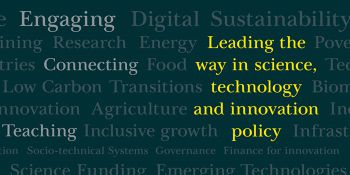The making of high-tech clusters: Evidence from corporate R&D labs in America
30 May 2025 13:00 until 14:15
University of Sussex Campus - Jubilee Building, Room G32 & online
Speaker: Jingyuan Zeng – LSE
Part of the series: SPRU Freeman Seminar Series
Add this event to your calendar

To register for this seminar with Eventbrite please click here
Abstract:
While prior work has documented substantial returns from inter-firm clustering, much less is known about the mechanisms and consequences of intra-firm R&D agglomeration. This paper investigates where, why, and how firms co-locate different R&D stages internally, and its impact on the geography of innovation during the mid-20th century's U.S. invention boom. I address this gap using uniquely digitized, geocoded data on firm R&D laboratory-level product lines, new product announcements, and technical engineer records. I exploit a novel empirical setting based on the unexpected advent of Fairchild Semiconductor, which marked the creation of the most innovative industry of the mid-1960s. I find that firms significantly concentrate production and commercialization around laboratories best positioned to absorb Fairchild's R&D advances. However, while intra-firm agglomeration facilitates synergies between R&D, production, and marketing, I find that the exposure of technical engineers to R&D commercialization equips them with managerial skills, increasing their value to co-located rivals. The risk of leaking tacit knowledge through mobile engineers limits the scale of intra-firm R&D agglomeration. The internally agglomerated R&D sites, in turn, spur persistent new firm entry in nearby locations. These findings provide new insight into the origins of industrial clusters such as Silicon Valley.
Bio:
Jingyuan Zeng is a PhD student in Economic Geography at the London School of Economics. He is currently a visiting scholar at the Duke University, Fuqua School of Business. His research interests include economic geography, the economics of innovation, and business history.
